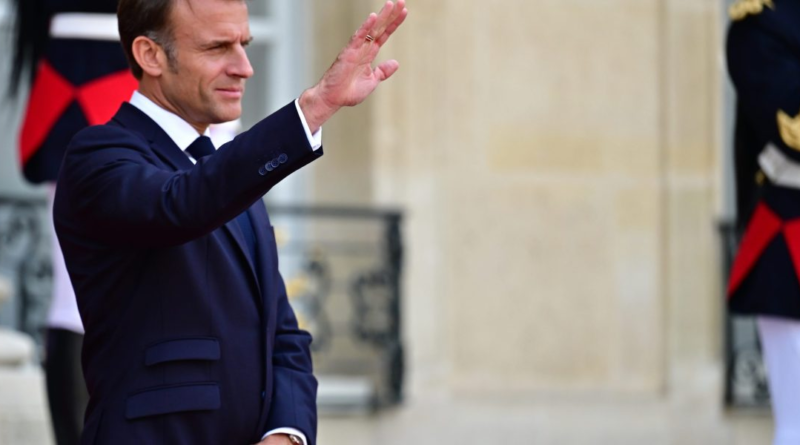Macron calls snap election for France as far-right gains ground in EU Parliament vote that will determine the region’s future
The long-anticipated European parliamentary elections finally happened last weekend. The multi-country vote involving 373 million eligible citizens across 27 countries is arguably the world’s most crucial election.
It’s also the European Union’s only directly elected body, serving for five years. Members of the parliament are tasked with passing laws for the entire bloc and managing its budget.
This year’s elections were a patchwork of right-wing wins and significant losses for European figureheads currently in office. The shock results triggered stock market sell-offs and led to dramatic leadership departures.
Here’s a look at the four key takeaways from the elections.
1. Up, up and up for Le Pen in France
Far-right parties made some of the biggest strides this election. France’s National Rally (RN) party candidate Marine Le Pen appeared to have a strong lead ahead of President Emmanual Macron’s Rennaisance party, according to exit polls—so much so that in a sudden move, Macron announced snap legislative elections on Sunday.
That increases the stakes for France’s political landscape in the weeks leading up to the two election rounds scheduled for June 30 and July 7.
The French markets and the euro fell on Monday as a result.
2. Far-right rising in Germany and Italy
Similar to France, projections show that the bloc’s most populous country, Germany, also witnessed a rise in the popularity of its far-right party, Alternative for Germany (AfD), compared to 2019. The party, mired in scandals for several months, also led the local polls within Germany, marking two big EU Parliament victories to the disappointment of Chancellor Olaf Scholz’s center-left Social Democrats party. The German opposition, too, has announced snap elections after being slammed in the polls.
Italian Prime Minister Giorgia Meloni also saw greater support for her right-wing ruling party, Brothers of Italy, up nearly four-fold since 2019. Meanwhile, the dominance of the right-wing nationalists against the liberal party in Belgium prompted Belgian Prime Minister Alexander De Croo to resign.
Given that the EU, which was founded following the defeat of Nazi Germany and a fascist Italy, the bloc has tried to push back on the rise of hard-right power. However, a greater presence of far-right figures could mean stronger anti-immigration and eurosceptic stances at a political level. A more polarized parliament could also make it harder to pass laws on topics like climate change.
Although far-right parties won about a quarter of the chamber’s seats in their best-ever set of European parliamentary elections, there were other notable wins, including that of Poland’s centrist party leader Donald Tusk who was an outlier to the broader trend.
3. Is there a path ahead for von der Leyen?
Ursula von der Leyen needs no introduction. She’s the most prominent EU leader and has been the European Commission’s president since 2019. Von der Leyen, a German physician who has helped the bloc navigate a global pandemic, wars, and an energy crisis, is now eyeing a second term.
Her European People’s Party looks set to clinch the most seats of any single group at the parliament, putting the commissioner one step closer to holding office.
Still, von der Leyen’s position isn’t guaranteed. There are worries about her coalition’s size this time, even though the EPP has a strong standing. Once the election results firm up, von der Leyen will still need the support of 361 MEPs in the new parliament, which looks more skewed to the right than before.
“The result comes with great responsibility for the parties in the center,” von der Leyen said on Sunday, according to Politico.
4. Too bad for the liberals and Greens
Some of the other noteworthy losses were among liberals and the Greens.
The liberal Renew group saw massive losses in Germany and Spain, costing them over 40 seats this year.
The Greens also lost their stronghold from 2019, rolling them back 10 years to where they stood in 2014—with just 52 seats. Their biggest beating came from Germany, a critical Green region. This could affect the EU’s climate change policies in the coming years.
While there are still moving parts to the puzzle with fresh national elections on the horizon, the EU Parliament now has a mix of old and new influences that will set the bloc’s course through to 2029.




